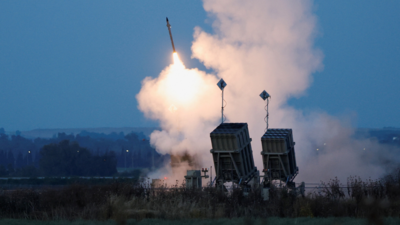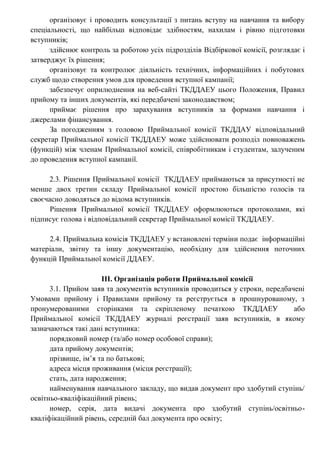The Unintended Consequences Of The Philippines' Typhon Missile System

Table of Contents
Economic Strain and Opportunity Cost
The Philippines' Typhoon Missile System represents a substantial financial undertaking. The high procurement costs associated with acquiring, deploying, and maintaining such a sophisticated system place a significant strain on the national budget. This financial investment raises serious questions about opportunity costs. The considerable resources allocated to the Philippines' Typhoon Missile System budget could have been invested in other crucial sectors vital for national development.
- High procurement costs: The initial purchase price of the missile system and its associated components represents a massive expenditure.
- Ongoing maintenance and operational expenses: The long-term costs of maintaining the system, including personnel training, fuel, and regular maintenance, are substantial and ongoing.
- Potential for corruption related to procurement contracts: Large-scale defense projects often attract scrutiny due to the potential for corruption in procurement processes. Transparency and accountability are crucial to mitigating this risk.
- Lost opportunities for investment in alternative defense or social programs: The funds used for the Typhoon Missile system could have been invested in upgrading the country's existing armed forces, bolstering cybersecurity infrastructure, or improving social programs like healthcare and education. The economic impact of Typhoon missile procurement necessitates a careful evaluation of its long-term value.
These economic considerations highlight the need for a comprehensive cost-benefit analysis of the Philippines' Typhoon Missile System. The economic impact of Typhoon missile deployment must be weighed against the potential gains in national security.
Environmental Concerns and Collateral Damage
Beyond the economic implications, the Philippines' Typhoon Missile System raises significant environmental concerns. The testing and potential deployment of these missiles could lead to various forms of pollution and ecological damage.
- Impact on marine life: Testing activities in coastal waters could negatively impact marine ecosystems, potentially causing damage to sensitive coral reefs and harming marine life.
- Air pollution from testing activities: The exhaust from missile engines and the release of particulate matter during testing can contribute to air pollution, impacting air quality and human health.
- Potential for unintended civilian casualties during deployment: Even with precision-guided munitions, there’s always a risk of collateral damage and civilian casualties in conflict situations.
- Long-term environmental monitoring requirements: Rigorous environmental monitoring programs are necessary to assess the long-term effects of the missile system on the environment and mitigate potential damage.
The Typhoon Missile environmental impact assessment needs to be a priority. Minimizing collateral damage and addressing the potential for pollution should be integral to the operational strategy of this system. The Philippines environmental security is inextricably linked to responsible defense practices.
Geopolitical Implications and Regional Instability
The introduction of the Philippines' Typhoon Missile System into the region carries significant geopolitical implications. Its deployment could potentially escalate tensions with neighboring countries and trigger an arms race in Southeast Asia.
- Potential for miscalculation and accidental conflict: The presence of advanced weaponry can increase the risk of miscalculation and accidental conflict, especially in a region with complex historical relationships.
- Escalation of regional arms races: Neighboring countries might feel compelled to acquire similar or more advanced weapons systems to counter the enhanced capabilities of the Philippines, leading to a destabilizing arms race.
- Impact on diplomatic relations with neighboring countries: The acquisition of the system could strain diplomatic relations with countries that perceive it as a threat to regional stability.
- Shift in regional power dynamics: The system could alter the existing regional power dynamics, potentially leading to increased competition and instability.
The Philippines Typhoon Missile System regional security implications demand careful consideration. Open communication and diplomacy are critical to mitigating potential conflicts. Understanding the geopolitical implications of Typhoon missile deployment is vital for maintaining peace and stability in the region.
The Role of International Relations and Foreign Policy
The Philippines' acquisition of the Typhoon Missile System will undoubtedly influence its foreign policy and international relations. The system's presence will impact the country's alliances, diplomatic strategies, and relationships with major global powers.
- Changes in alliances and partnerships: The system's deployment could strengthen or weaken alliances, depending on how other nations perceive it.
- Impact on foreign aid and investment: Some countries may reconsider providing aid or investment to the Philippines due to concerns about regional stability.
- Shift in diplomatic strategies: The Philippines may need to adapt its diplomatic strategies to address the implications of having such a powerful weapon system.
- International community response to the acquisition: The international community's reaction to the acquisition will shape the broader geopolitical context within which the Philippines operates.
The Philippines foreign policy Typhoon missile implications necessitate a proactive approach to maintaining positive international relations. Transparency and open communication with other nations are key. The careful navigation of global power dynamics surrounding the Philippines' Typhoon Missile System is crucial for long-term stability and prosperity.
Conclusion
The Philippines' Typhoon Missile System, while intended to enhance national security, carries significant unintended consequences. The economic strain, environmental risks, and geopolitical implications all present substantial challenges. The opportunity cost of diverting resources from other crucial sectors, the potential for environmental damage, and the risk of escalating regional tensions are all serious concerns. Understanding the full scope of the unintended consequences of the Philippines' Typhoon Missile System is crucial for informed policymaking. Further research and open public discourse are needed to ensure the system’s deployment aligns with the nation’s broader security and development goals. A comprehensive strategic assessment of the Philippines defense needs, considering both the costs and benefits of the Typhoon Missile System, is paramount.

Featured Posts
-
 Druga Ditina Dzhennifer Lourens Data Narodzhennya Ta Stat Ditini
May 20, 2025
Druga Ditina Dzhennifer Lourens Data Narodzhennya Ta Stat Ditini
May 20, 2025 -
 Jennifer Lawrence Welcomes Second Baby With Husband Cooke Maroney
May 20, 2025
Jennifer Lawrence Welcomes Second Baby With Husband Cooke Maroney
May 20, 2025 -
 Office365 Inbox Hacks Net Millions For Cybercriminal Authorities Say
May 20, 2025
Office365 Inbox Hacks Net Millions For Cybercriminal Authorities Say
May 20, 2025 -
 Maitrisez L Art De L Ecriture Lecons D Agatha Christie Et L Ia
May 20, 2025
Maitrisez L Art De L Ecriture Lecons D Agatha Christie Et L Ia
May 20, 2025 -
 Zachary Cunha Private Practice After Serving As Ri Us Attorney
May 20, 2025
Zachary Cunha Private Practice After Serving As Ri Us Attorney
May 20, 2025
